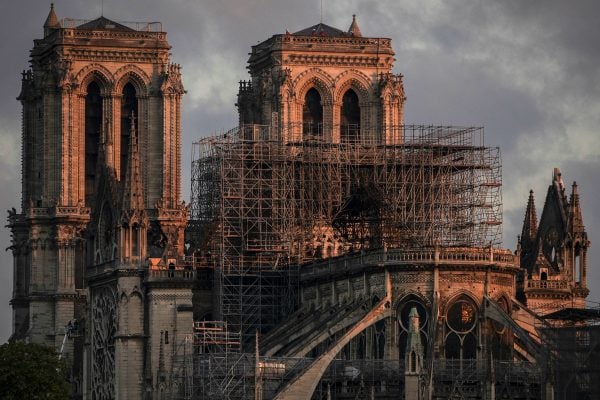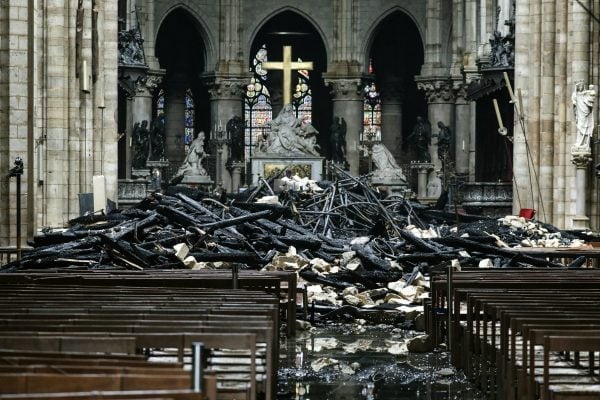
The Notre-Dame cathedral fire stunned onlookers into silence on Monday afternoon, as the heart of an icon that had stood for more than eight centuries was reduced to ash in a matter of hours.
There were no deaths, no serious injuries, but it was a tragedy for Parisians, nonetheless. As well as being a drawcard for millions of tourists each year, Notre-Dame – which translates to ‘Our Lady’ – is considered the spiritual heart of the city. To them, it is a ‘she’, a symbol of the city’s endurance.
Yet as firefighters reduced the ferocious blaze to embers, few could have predicted just how much some super-wealthy Frenchmen were intent on continuing that legacy, on seeing their lady stand tall again.
Billionaire businessman Francois-Henri Pinault (pictured above), founder of Gucci parent company, Kering, pledged 100 million Euro towards a Notre-Dame restoration fund announced by President Emmanuel Macron. Hours later his ‘nemesis’, CEO of luxury brand group LMVH, Bernard Arnault, pledged 200 million.
L’Oreal’s primary shareholder, the Bettencourt Meyers family, also declared they would donate 200 million Euro to the cause. And Patrick Poyanne, boss of French oil company Total, promised 113 million.



Top Comments
The catholic church would surely have enough money to pay for this.
As for where rich people put their money, we don't know exactly what they do with their money. They could be donating a lot to charity but we don't hear about it. L
If a billionaire loves the Notre Dame and want to pay for the restoration as part of their legacy or whatever, then so be it.
I suspect many of them do have affiliations with charitable organisations. But it’s appropriate for philanthropists to support the arts. Humanitarian issues need a more coordinated and reliable approach- that’s why governments should be responsible for them. How about we fix the tax system so billionaires and companies pay their share, then that revenue is used by governments to solve these issues and for international disaster relief.